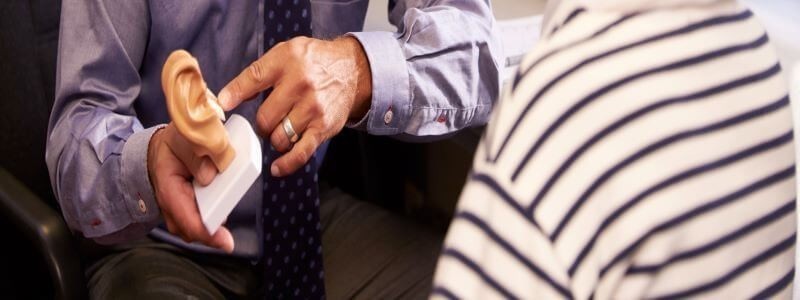
Earwax Removal and How to Clear Wax
What causes earwax?
| Hearing Aid UK 18/12/2025 Update |
Most people see earwax, or cerumen, as a nuisance to be cleared away regularly.
Earwax, or cerumen, is a natural substance produced in the ear canal to help protect and clean the ears. It’s made up of dead skin cells, sebum, and the waxy secretion known as cerumen. Although it typically moves out of the ear on its own, buildup can occasionally occur, leading to issues such as hearing loss, earaches, or tinnitus.
Earwax plays a major beneficial role in our ears. To look after your ears and maintain good hearing for years to come, you should be mindful of how earwax works to keep your ears clean.
Can earwax be good for your ear health?
There are benefits to earwax, as this natural substance performs several important roles within the ear. The advantages of earwax are:
Earwax helps clean your ears
Earwax functions as a protective shield that prevents any dirt or bacteria from entering the inside of your body. Its sticky consistency is ideal for collecting microscopic debris that might get into your ear canal, similar to the way a sticker might pick up dust. Your inner ear would be at risk of infection without this defensive barrier.
Earwax helps moisturise your ears
Earwax also moisturises your ear canal. Without it, your outer ear may turn itchy and flaky, making you more likely to become irritated and infected. In the same way that lip balm prevents chapped lips, earwax helps protect the inside of our ears from the effects of dryness.
Earwax leaves your ears by itself
Earwax naturally removes itself from the ear canal. It typically travels towards the ear canal opening, where it dries and falls out. It is also washed away during showering. In this way, earwax doesn't usually need any help from any external instruments to get out of the ear canal.
What are the disadvantages of earwax?
Too much earwax is not good. While earwax is important for hearing health, a common problem is too much earwax in the ear canal. In the United Kingdom, it is estimated that 2.3 million people have issues with excessive earwax every year. Indeed, earwax removal is the most widespread ENT procedure performed in primary care, with nearly 4 million ears irrigated every year.
How to clean your ears to keep earwax under control
How often should I remove earwax? People develop various amounts of wax at different speeds. While a person may need regular appointments to manage their earwax, someone else may only need occasional trips to a hearing professional for earwax removal. Your audiologist will speak to you about your future appointments and how often they should be.
Ear wax removal kits - What about removing earwax at home?
Wondering how to remove stubborn earwax at home? You can remove your wax or clean your ears at home safely with various remedies, treatments, and ear wax removal kits. But, it all depends on how much build-up you have and if your symptoms aren't of the urgent kind.
In all scenarios, you must speak to a hearing healthcare professional for advice before you attempt to clean your ears yourself at home.
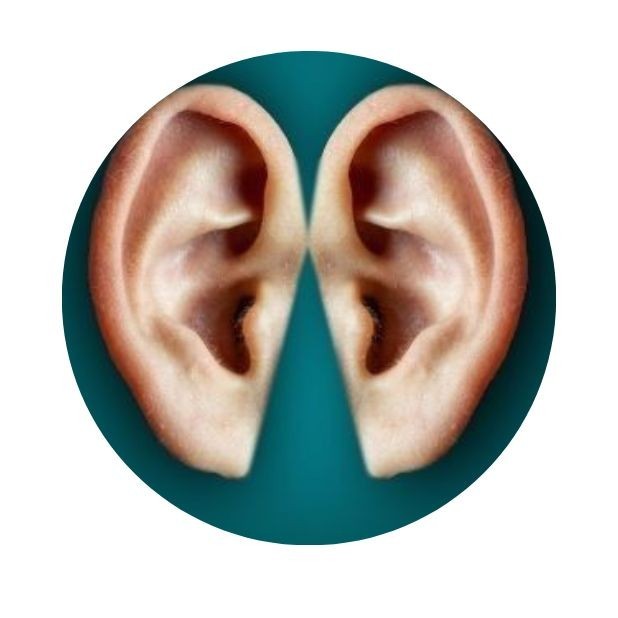
What causes excess earwax?
Earwax and hearing aids
Hearing aids that are snugly positioned inside the ear will stop earwax from escaping. This does not usually cause trouble, but it should be noted if your ears are more susceptible to wax build-up.
Earwax and getting older
The older you are, the more likely you are to harbour excessive earwax, experts say. This is because earwax in older ears tends to be drier and finds it harder to leave by itself.
Earwax and cotton swabs
Many in the UK have a long-established ear cleaning habit with cotton buds, which increases the chances of forcing old earwax further down into the ear canal, causing a blockage. Often, people have real earwax issues that need to be addressed, but cotton buds aren't the way to do it.
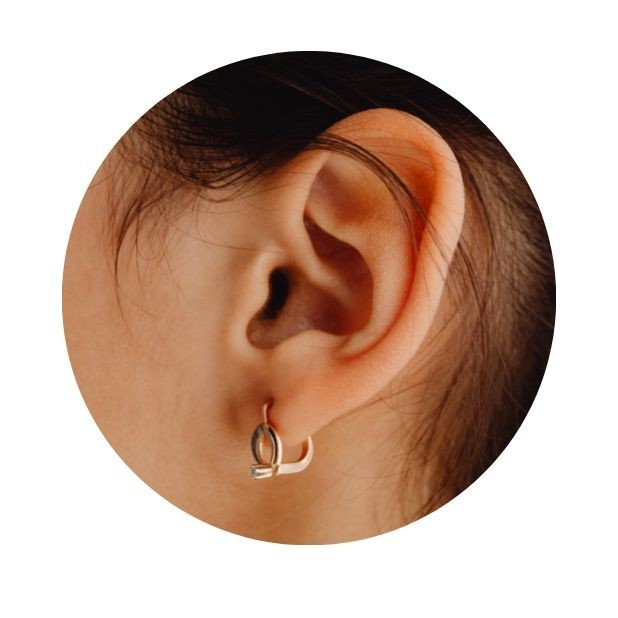
Spotting the signs of excessive earwax
There are many symptoms of the over-accumulation of earwax and earwax buildup. You may experience one or all of these symptoms, but it is crucial not to self-diagnose. Only your GP will be able to give you an accurate verdict.
Some of the common symptoms and causes of a build-up of earwax include:
- Hearing loss
- Earache
- Itchiness inside or around the ear
- Buzzing or whistling sounds coming from inside your head, without the presence of external noise.
- A feeling of dizziness or spinning
- Ear infections
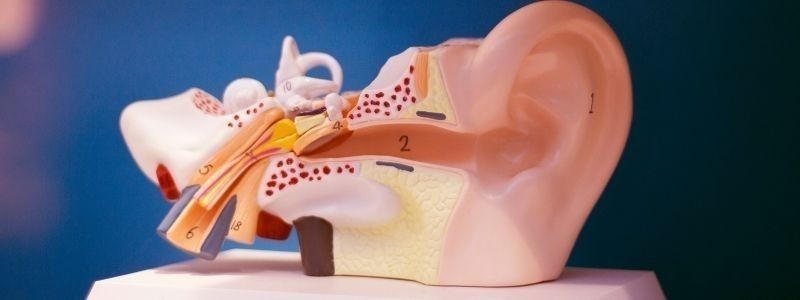
Earwax Removal
How to get rid of earwax at home
What to do if you have an earwax blockage
What is the best way to remove earwax? If you develop an obstruction in your ears and think that earwax is the culprit, it is advised that you follow this advice and the dos and don'ts.
Don't use cotton buds
Do not use a cotton bud, a hairpin, or a sharp tool to try to remove the wax. When you poke at your ear with a foreign object, the earwax pushes back into your ear canals and may cause health problems and the problem to escalate.
Don't use earwax candles
Do not try ear candling. In this practice, a tapered long candle is inserted into the ears of the individual with impacted earwax and then the other end is lit. Those who practice ear candling claim that the fire produces suction, which draws the earwax out of the ear. These claims are simply not true.
Furthermore, lighting objects so close to the ear constitutes a fire risk and is not recommended by the NHS. Injuries may include eye, ear, and middle ear burns, eardrum damage, or further blockage of the ear canal.
Use ear drops
A pharmacist might recommend chemical drops to dissolve the earwax. The earwax will break off on its own or dissolve after approximately one week. Nonetheless, do not use it if you have a hole in your eardrums (a perforated eardrum).
Most eardrops have Hydrogen Peroxide. Hydrogen Peroxide has, in the past, been labelled as an effective ingredient for earwax removal and a good way to treat a buildup of earwax at home. It can also be a better way to treat earwax than water, which can lead to complications. These forms of eardrops are a safer option.
However, if you feel that you may have an ear injury, you should refrain from using eardrops, as this can lead to an infection or ear pain. You should also never stick a foreign object in your ear to remove earwax after you have used drops. Ensure you book an appointment to get your earwax and ears checked by a hearing professional.
See your GP or local audiologist
Use this option if your home treatments don’t produce results after a week. Audiologists typically have the expertise and equipment required to safely remove excess earwax. Make sure to see your General Practitioner if you have sudden hearing loss or pain.
Performing routine ear wax maintenance

Performing routine earwax maintenance
Is there a natural way of removing earwax?
You can source natural ear cleaning remedies over the counter at your local pharmacy with a step-by-step guide on how to clean your ears. For instance, Earol spray is a natural ear wax remover, as it is mostly made of olive oil. It also reduces the need to have microsuction earwax removal.
The main benefit of this ear spray is that it can soften and naturally remove earwax, depending on how severe the wax has developed.
Commonly, an excess of wax buildup can cause a ringing in the ears, called tinnitus. But why does it cause tinnitus? The buildup of wax causes pressure that affects the nerve cells in your middle and inner ear, and your brain interrupts these sounds as noise - this is tinnitus.
What is commonly linked to earwax?
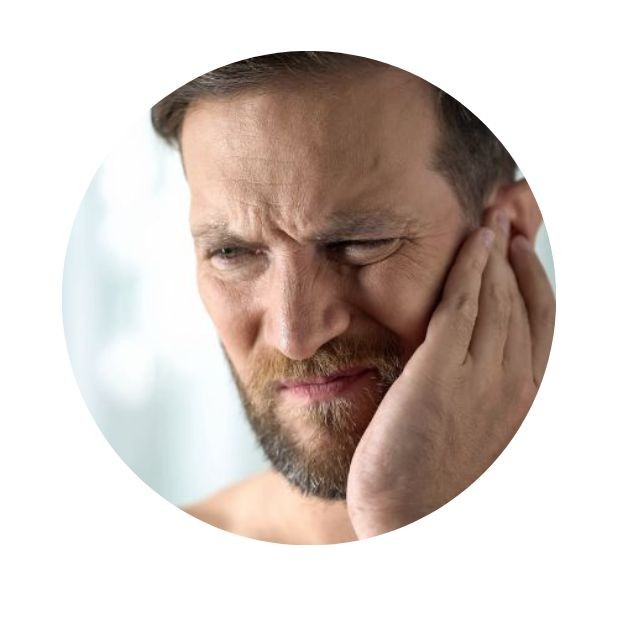
What is commonly linked to earwax?
Earwax and conductive hearing loss
The most common cause of conductive hearing loss is excessive earwax. A physical barrier of earwax prevents sounds from the outer ear from travelling to the inner ear. As the wax develops gradually, it can be hard to detect the effects of hearing loss.
However, the problem becomes clearer when the wax builds up to the point of obstructing the ear canal fully. Luckily, this type of hearing loss can usually be reversed by removing the offending earwax.
Earwax and dizziness
Is earwax a sign of an ear infection? As well as tinnitus symptoms, you can also feel the fullness of the ear, pain, and even dizziness. Whatever symptoms you have, you need to seek medical treatment to get a professional diagnosis and assistance.
Earwax Removal
How to keep on top of your earwax
Learn to have earwax work with you instead of against you
Although your ears clean themselves, there are a few things you can do to keep your ears clean and free of unnecessary debris. Use a warm, soapy washcloth to wash your ears. If you let the warm water flow into your ears occasionally during your shower will also make the earwax softer, making it easier to fall out by itself.
Even if you have no earwax problem, it's a good idea to have your hearing checked by an audiologist annually. They can identify excess earwax and some can even extract it for you. In any case, they will offer invaluable advice to keep your ears healthy.
In most situations, the body is great at removing excess earwax on its own. Nonetheless, medical intervention may be necessary to stop hearing loss and several other underlying disorders when impacted earwax arises.
With a few simple hygiene measures and regular visits to healthcare professionals, however, you’ll easily learn to have earwax work with you instead of against you.
Professional earwax removal
Looking for earwax removal near me? If your ears are blocked with wax, you may have been told that you need your ears syringed. This used to be easy to do through your local GP, but these days there are far fewer GP practices willing to perform ear syringing, mainly because the procedure is no longer part of a doctor's training.
There are three different methods of earwax removal we can offer. The traditional syringing, the more popular micro-suction, or even endoscopic suction. The latter two are generally preferable as there is no need to apply wax softening drops for several weeks beforehand, and also, you don’t get wet. Suction is generally considered to be safer as well as there is no pressure being put on the eardrum.
Consultations can be performed at one of our clinics or as a home visit and will take around 10 to 15 minutes per ear. The cost is from £40 for one ear or £60 if both ears need doing.
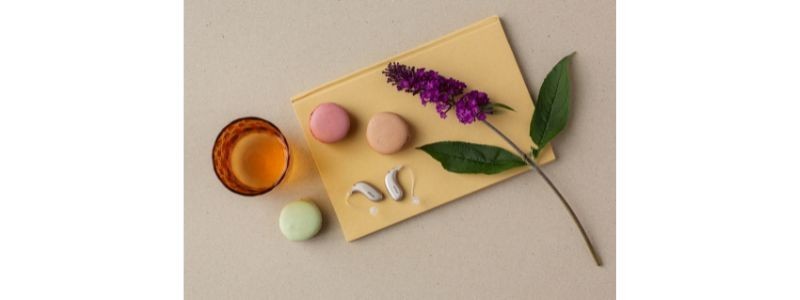
Hearing Aid and Ear Care
Products that can help you day to day
Skincare gels to ease the ears
Most skincare gels are dermo-protective, which is used to prevent ear dryness and irritation due to wearing hearing aids. They are also useful when you put your devices in, as they make it easier and more comfortable to insert and wear all day.
Ideal for: Those people with dexterity issues and first-time hearing aid wearers.
Natural lubricants to ease the ears
These can be as natural as being made from almond oil and make it easier for you to put in and take out your hearing aids. They help with any dryness or irritation caused by wearing hearing aids.
Ideal for: Those people with dexterity issues and first-time hearing aid wearers.
Ear spray to clean the ears
Many ear sprays contain isotonic solutions that include surfactants that remove earwax and dirt. They can also relieve irritation after wearing hearing aids.
Ideal for: These sprays are ideal for the elderly who are easily at risk of earwax build-up or for those who are exposed to dusty environments often.
How can we help you, your ears, and your earwax?
All of our consultations are performed by registered audiologists who are fully qualified in earwax removal. If you would like to speak to us about booking an appointment ,then please call us free on 0800 567 7621
►Click here to read about hearing aid troubleshooting
►Click here to read about hearing aid batteries
►Click here to read about how to get used to your hearing aids
What's included in our hearing aid prices?
Our specialist service includes:
Do not spend hundreds of pounds without getting a second opinion from us.
Please call us on 0800 567 7621
 Not only are the prices great, but the service is fantastic! Many thanks to your team.
Not only are the prices great, but the service is fantastic! Many thanks to your team.Other pages you might find useful
Ask the Experts
6 Morton Lane
Walkwood
Redditch
Worcestershire
B97 5QA
Latest Launch
When we refer to a product as 'Latest Launch', we mean it is the latest to be released on the market.
New
When we refer to a product as 'New', we mean that the product is the newest hearing aid model on the market.
When we refer to a product as 'Superseded', we mean that there is a newer range available which replaces and improves on this product.
Older Model
When we refer to a product as an 'Older Model', we mean that it is has been superseded by at least two more recent hearing aid ranges.

